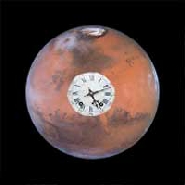Climate change, the physics of time and the Bristol dinosaur are topics members of the public can learn more about at a series of free public lectures starting next week. The talks, by Bristol University academics, are aimed especially at a non-scientific audience.
At the first talk [February 9], The connection between bugs and climate.
Dr Richard Pancost, Lecturer in Biogeochemistry in the Department of Chemistry, will discuss important players in global climate. Micro-organisms, such as bacteria, generate and consume methane, a greenhouse gas. These micro-organisms also control and influence how much oxygen is in the bottom of the ocean. Dr Pancost will address these organisms’ behaviour and their role in future climate change.
On February 23, Dr Pancost will give the second of his talks in How did climate change in the past? Current human activity has a huge impact on today’s climate. He will look at how the history of the Earth can help in our understanding of how climate has changed in the past and why.
Dr Pancost, commenting on his talks, said: “Both scientists and the public are increasingly concerned about the extent of future climate change and how it might affect us. The most direct way to test the nature of future climate change is to attempt to ‘model’ it. But how do we test those models? How do we evalutate the climate change that is human-driven as opposed to the natural climate variability of the Earth? And how do we know that the Earth will respond to future changes the same way as it responds to them today?
“I’ll discuss the microscopic biological and chemical processes that underlie the Earth’s response to climate change and evidence for climate change in the past. Such research helps us to understand not only the extent of Earth’s natural climate variability but the how and why of that variability.”
Dr Vincent Smith, Department of Physics, will talk on March 9 about What time is it on Mars? Dr Smith will look at the history of timekeeping, associated 20th-century complications and conclude with some of the problems of timekeeping away from the familiar Earth.
Finally, on March 16, Remmert Schouten, from the Department of Earth Sciences, will talk about the Reconstruction of a Bristol dinosaur. A major scientific and educational project that began back in 1834, when the first fossils were found, the Bristol dinosaur (Thecodontosaurs antiquus) is one of the world’s oldest plant eating dinosaurs and one of the first to be found. The talk will give an insight into its origins and the enormous efforts taken to help reconstruct it.
The interactive talks, organised by the University’s Public Programmes Office, take place in The Gatehouse Centre, Hareclive Road, Bristol, on Wednesdays from 1 to 2 pm.
No pre-booking is necessary and members of the audience are welcome to bring their sandwiches.
